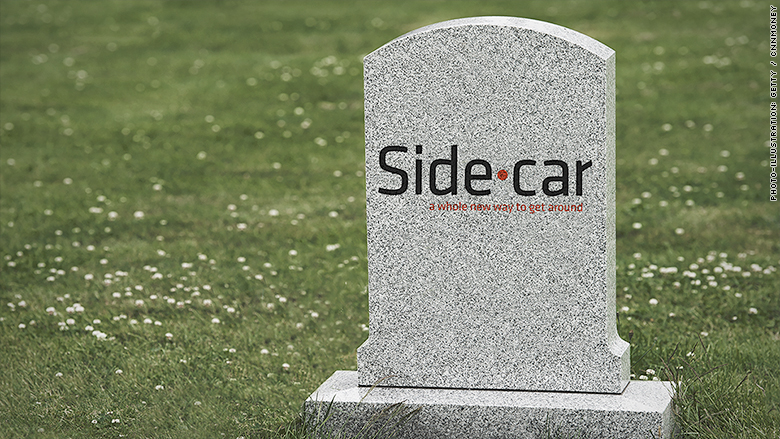
After years of trying to catch up to competitors Uber and Lyft, lesser-known ride-hailing startup Sidecar is ceasing operations.
The company will stop offering all rides and deliveries on December 31, 2015 at 2 pm PT. Sidecar founder and CEO Sunil Paul announced the decision in a Medium post on Tuesday.
Sidecar was an early competitor in the ride-hailing app world. Launched in 2012, it raised $35 million in funding from major venture capital firms, including Virgin's Richard Branson.
It branched out to a number of U.S. cities, but never managed to find the same loyal following, or funding, as Uber and Lyft. Uber has become the most valuable private company in the world.
Sidecar has claimed it invented the concept of ride-sharing, in which a smartphone app is used to connect people with drivers using their personal cars. Though Uber existed first, it only worked with limos at first.
"We are the innovation leader in ridesharing despite a significant capital disadvantage, continually rolling out new products that set the bar for others to follow," said Paul in the post.
The struggling company was dabbling in other business models to help drum up business. Starting in 2014, Sidecar started doing same day deliveries for e-commerce companies like EAT24. Uber launched its own delivery business in April 2015.
In May, Sidecar announced it was teaming up with medical-marijuana delivery startup Meadow to handle its same-day deliveries in the Bay Area. The drivers needed to be medical marijuana patients themselves and members of the dispensary sending out the packages.
The company is not disappearing completely. The remaining team will "work on strategic alternatives and lay the groundwork for the next big thing," said Paul.

